Are you opening your first retail business in a physical location?
Congratulations! We appreciate that a first-time business owner may not be in a position to purchase. That is precisely why you need to consider properties for lease.
Regardless of the type of business you run, retail space for lease or restaurant lease, for example, you need to understand which are the costs to consider. Unlike residential lease agreements, commercial properties for lease are open for negotiation. Consequently, a solid understanding of how lease costs are calculated can guide you through the process.
If you are a new landlord and are in the process of putting your properties up for lease, this guide can also clarify some of the most important terms and structures.
Here, at Vesper Realty, we are dedicated to making real estate more accessible for our clients in Metro Detroit, Michigan. That’s why we’ve compiled a brief overview of the costs that are accounted for in a lease agreement.
Business space for rent near me, where to find it?
For new retailers or restaurant owners, assessing startup costs can be challenging. Your business plan requires you to estimate a variety of costs to evaluate whether your shop or restaurant business is viable. These costs include your rental expenses.
We often see new entrepreneurs reaching out at the start of their business journey, asking: How can I find a budget-efficient building for lease near me? Our Vesper Realty experts are very familiar with that question.
The location of your retail space will affect the cost. Indeed, a popular area accessible via public transportation or highway is more likely to drive a high footfall. Consequently, you can expect to find more expensive retail leases in or around busy areas, such as a shopping mall.
On the other hand, a restaurant lease in a remote location that doesn’t lie close to major routes is more likely to offer a cheaper base rent. However, an expensive site that attracts many visitors also leads to high profits.
In other words, it can be easier for new businesses to survive in a busy location and be in a position to afford the appropriate costs.
We always recommend business owners to run business pan calculations for different locations. Indeed, a cost-friendly lease in a remote part of town may affect growth and profits, becoming unaffordable in the long term. Therefore, it can help estimate how much clientele you can expect in each location to run an accurate cost comparison.
Different lease types based on your business
Once you have gained a better understanding of how the choice of location can affect your cost and business viability, the next step is to familiarize yourself with the different lease types.
You are more likely to come across 4 main types of lease:
- Gross lease
- Double or Triple net lease
- Modified net lease
- Percentage lease
Single net lease is less frequent agreements that are typically suitable for different commercial purposes and businesses.
Properties for lease using a gross lease agreement tend to host professional services businesses, These include consultancy or accounting. In a gross lease, the landlord ends up being responsible for the majority of operating expenses. The tenant pays the monthly rent and a split of maintenance costs for common areas. When you establish your retail business in a professional services niche market in an existing building, you may be able to negotiate a gross lease agreement.
The double net and triple net leases need the tenant to pay for some operating expenses. In a double net lease, the tenant pays taxes and insurance, while a triple net lease agreement also adds maintenance costs. You could even come across an absolute lease scenario in which the tenant is financially responsible for the entire building. Landlords will prefer these lease agreements for retail businesses that rely heavily on utilities, such as shops that also manufacture products on site.
The modified net lease sits between a gross lease and a triple net lease. In this constellation, the business is expected to pay a percentage of the operating costs after the first year of activities. It can be a smart choice for businesses such as restaurants that may benefit from a year or more to build profitability.
Finally, the percentage lease adds a percentage of your monthly sales volumes to the base rent. You are more likely to come across these in large shopping malls that offer individual retail space for lease.
How do properties for lease express costs?
Understanding which type of lease agreement your landlord seeks and which costs are negotiable as part of your contract will provide an indication of costs. You are unlikely to have the same rental costs with a percentage lease vs. a gross lease agreement, for instance.
You also need to consider how your landlord calculates specific rental costs, such as the rent per square foot. Typically, your lease draft includes a cost set at a specific amount in $ per square foot. The rent per square foot is expressed either as a monthly or an annual cost.
Another factor that affects the calculation is the way the landlord calculates a percentage lease. Indeed, the landlord can apply the percentage over a base amount, meaning that the tenant only pays a percentage of gross receipts over a pre-agreed amount. Percentage of gross receipts calculations don’t set a bottom-line revenue, so the tenant is always expected to pay a portion of gross receipts.
What are the other costs in my retail space for lease?
As mentioned, your lease agreement will state which costs are at your charge or are the landlord’s responsibility. Before signing your lease, it is a good idea to enquire how much your costs will be. During this step, you can reach out to insurance brokers, building maintenance operations, and local authorities to budget your expenses. Your landlord can also provide information and estimates.
Depending on your lease, you want to understand how much to budget for the following elements:
- Insurance property tax
- Maintenance repairs
- Security
- Parking
- Local nuisance laws
- Utilities
- Modifications
With over 25 years of experience helping landlords and tenants, our Vesper Realty team is happy to answer your questions regarding properties for lease. Whether you are a tenant or a landlord, don’t hesitate to get in touch to bring your business to the next level.

